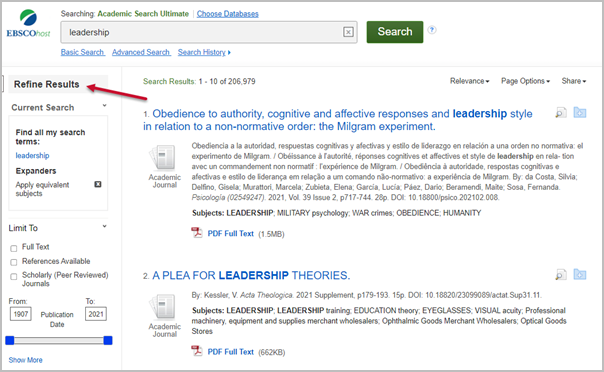The library provides a list of Articles & Databases that you have access to as an ISU student. You can access these from the library homepage.

General purpose article indexes cover many different subject areas and often include articles from magazines and newspapers as well as from scholarly journals. One good example of a general-purpose index is Academic Search Ultimate. Because it covers many different subject areas, a general-purpose index like this can be a good place to start.
In Academic Search Ultimate, options for filtering your search results are located on the left side of your screen in the Refine Results section. You can use these to focus your search results in various ways.

Academic Search Ultimate has some interesting and unique features, including text to speech technology that can read articles to you. Other features include saving your search results, filtering articles to peer-reviewed journals only, and generating citations for your bibliography.
Indexes like Academic Search Ultimate are great for finding information when you’re not sure which subject area your topic falls under. However, if you want to find in-depth research articles in a specific subject area, subject-focused indexes are a better choice.
When you are doing in-depth research and need to find a comprehensive set of scholarly articles in a particular subject area, the best finding tool will almost always be an index focused on that subject. Here are a few examples of subject-focused indexes to give you a better idea of what they can cover:
Subject-focused indexes like these offer discipline-specific tools to help you search, sort, and focus your results. For example, history databases let you search by the date an event occurred, whereas chemistry databases let you search by chemical compound. You will want to familiarize yourself with the indexes that relate to your classes so you can efficiently find the best sources for your projects.
The library's collections and services are available to all ISU students, faculty, and staff and Parks Library is open to the public.